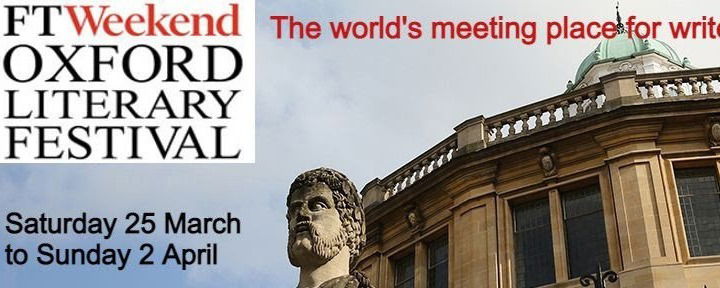Louisa Treger at Oxford Literary Festival


The FT Oxford Literary Festival is in full swing and well-attended. The number of events seems to increase every year and there is the usual stimulating mixture of well-established authors and rising stars. In the latter category I would place Louisa Treger, the novelist, whose appearance today was once of the most exciting events for anyone interested in women’s fiction and history.
Louisa was interviewed by Alexandra Pringle, the long-time senior editor of Bloomsbury Publishing, about her latest novel Madwoman. It is a fictionalized account of the extraordinary feat of the investigative journalist known as Nellie Bly, who in 1890s New York feigned madness in order to get admitted to an asylum for the insane and discover what it was really like for those sent there. It was a daring and very risky thing to do – how could she be sure she would ever be let out? Even for a woman whose other exploits included travelling around the world solo, to prove it could be done in 72 days (and beating her rival, a male journalist), to get herself consigned to the ghastly prison-like institution on Blackwell’s Island was reckless to the point… of insanity, you might say. She was lucky she did not get caught in a Hamlet-like conundrum, and left there because only a mad person would pretend to mad.
Looking back on her previous books, The Lodger, about the novelist Dorothy Richardson, and Dragon Lady, about Lady Virginia Courtauld, Treger said that all of them have been about “trailblazing women who refuse to conform, and struggle to find their place in the world”. Nellie Bly had huge difficulty in getting herself accepted as a journalist, let alone writing on the edgy topics she chose. At a time when most newspapers only wanted female contributors to write about fashion or household matters, she wrote about industrial relations, and infuriated factory owners by exposing poor conditions and low wages. She wrote about divorce and whether women had a right to work and be independent. After her early widowhood, she returned to journalism in time to report on the First World War.
Bly achieved genuine social change by exposing what went on in the asylum, where women who could be consigned there for the pettiest of reasons, by families who wanted to control and suppress them, were kept drugged and half-starved, in cold dreary surroundings with nothing to do but sit on benches all day. After her full account was published, the city increased the asylum’s funding and tried to improve standards of care. Madness has always been a hot topic in feminism because of the way that diagnosis of madness has long been used to curb rebellious women. On the other hand, many highly creative people have fragile mental health and women are no exception to this. Virginia Woolf and Charlotte Perkins Gilman (who wrote "The Yellow Wall-Paper”) are two of Bly’s contemporaries who produced valuable work by living close to the dangerous edge, sometimes straying over it.
There was a long queue of people wanting to buy Madwoman, and I look forward to reading it. I could not help comparing this event, so stimulating and positive, with the earlier one on the same day, when Diane Purkiss talked about her latest book, English Food: A Social History of England Told Through the Food on Its Tables. Diane Purkiss is a Professor of English Literature in Oxford University, which has a deeply disappointing record where women’s studies are concerned. I remember her when we were both post-graduates in the 1980s, and women’s studies hardly existed at Oxford. In the seven years or so that I attended research seminars in English and History there was only one – one – that focussed on a woman as its principal subject of research. I remember it vividly. It was about Lady Anne Clifford, and her inheritance. Women writers? They didn't even exist, not until the 19th century or so we were told!
Of course there was Marilyn Butler over at St. Hilda’s College until 1986, writing books about nice girls like Jane Austen and Maria Edgeworth, but then even she left to become a Professor at Cambridge. I slightly wonder why a woman Professor of Literature like Purkiss has retreated into the conventional realm of women’s interests by writing about food. It’s entertaining – and I’m very interested in food myself, in fact I follow various food historians on the internet - but you don’t need a specialist degree or the facilities of a university to write about it. Is it scholarship or is it just colour supplement journalism?
